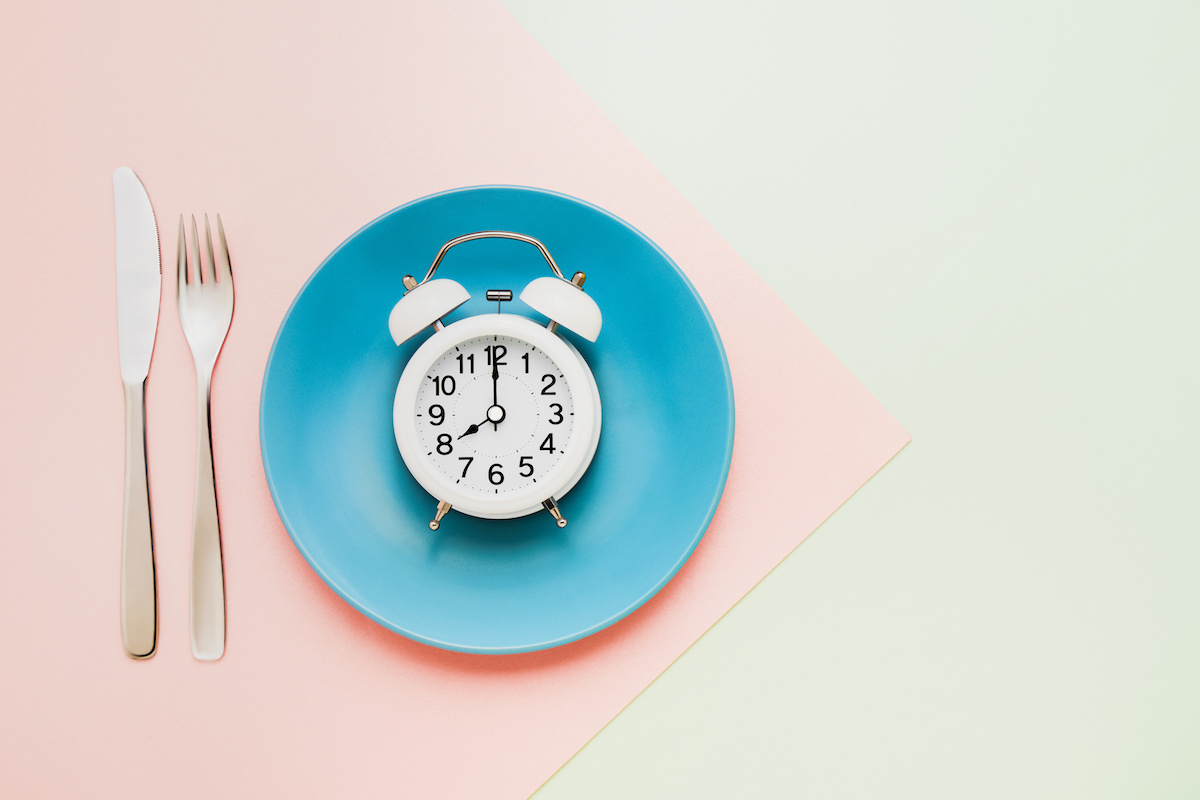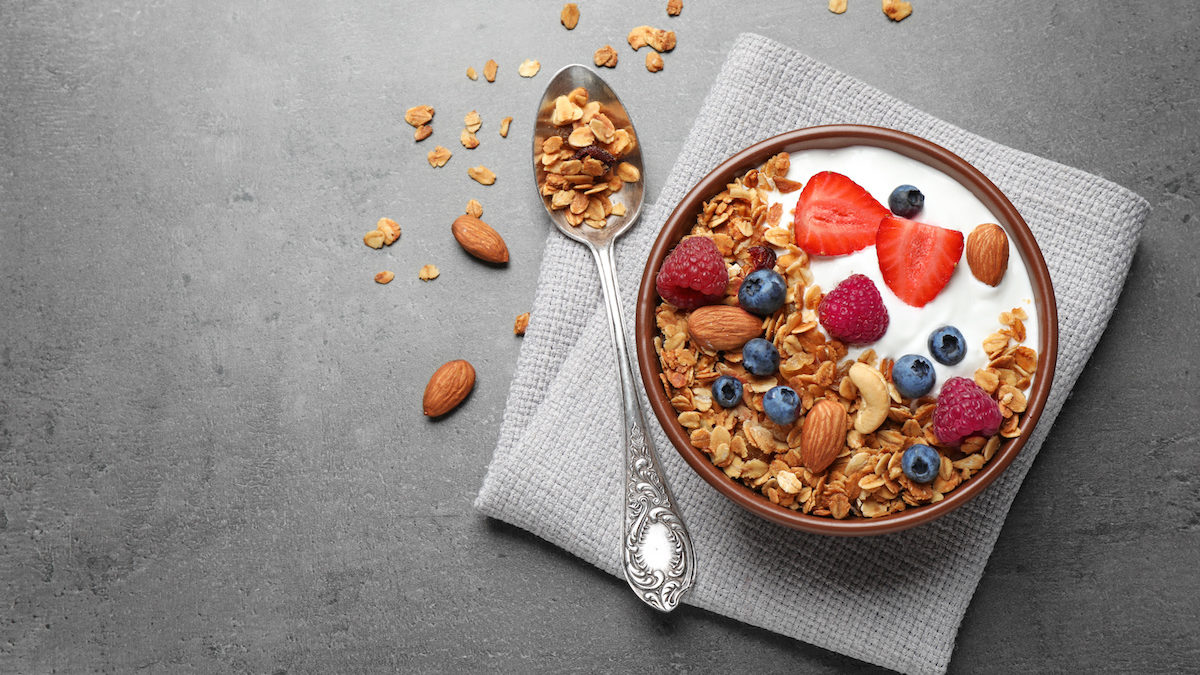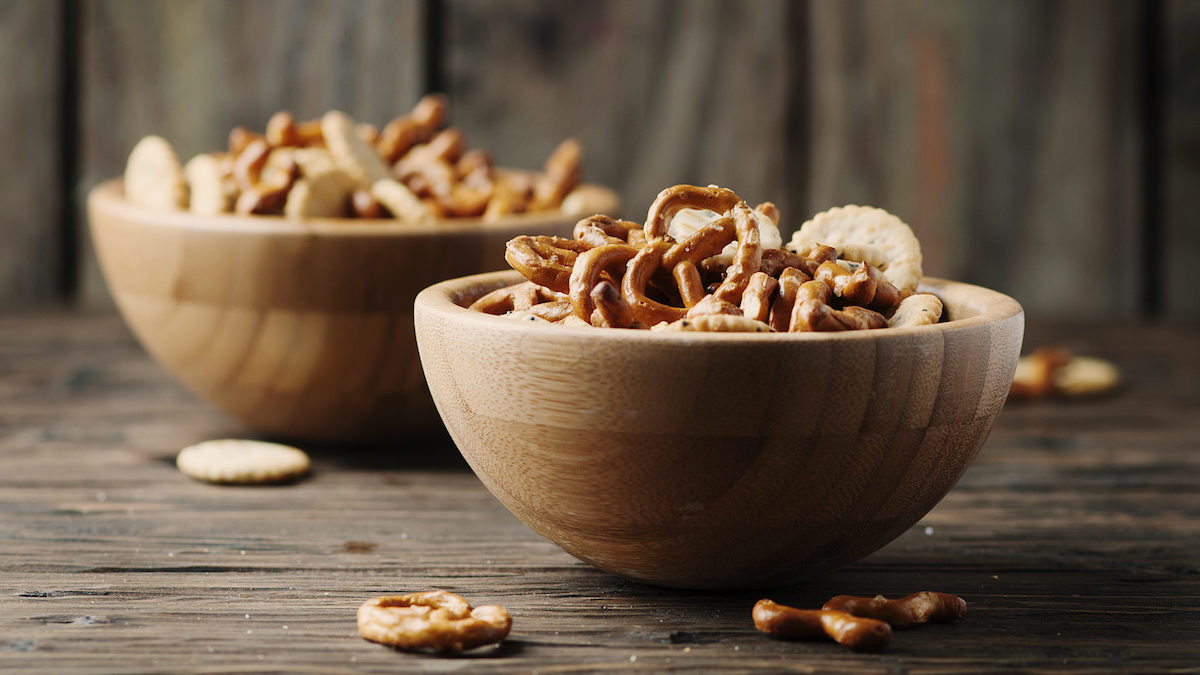When and How Often Should You Eat to Help Manage Your Weight?

When it comes to managing your weight, most people can understand the concept of eating too much (or too little). Many will also understand that too much of certain things like fat and sugar, can also impact your weight.
But beyond these universal truths it is useful to appreciate that timing – as in when you actually eat – can also play a role. This could be overall meal structure such as having the traditional three meals, but also how much, and how often you are eating too.
Our contemporary meal structure of breakfast, lunch and dinner only established itself long after the industrial revolution. But even then, the distribution of energy across the day has shifted recently to more energy loading in the evening. Meal and snack frequency has also changed, with more opportunities to graze across the day, facilitated by the way we now live and work, and an on-the-go takeaway culture.
Two recently emergent areas of nutrition have ignited an interest in timing specifically. The first is intermittent fasting (IF) which involves increasing the time between eating to allow for better metabolic management, with potential benefits in terms of a decreased food intake overall.
The popular time restricted feeding (TRF) form of IF extends the fasting period within 24 hours, by reducing the eating window. The most well-known of these diets is the 16:8, which limits this window to around 8 hours.

The second emerging area is chrononutrition, which concerns the interaction between our chronobiology and what and when we eat. In essence, our bodies are governed by biological rhythms, synchronised to day and night across the 24 hour day which controls our physiology and metabolism. Eating at the wrong time of day then could have significant implications for weight management and metabolic health, for example in shift workers and trans meridian travel. It also crosses over to the interplay between sleep and nutrition.
In the following article, we will look into these two fields, as well as discuss whether the oft-skipped breakfast should be kept on our plate, why an appetite for unhealthy snacks hits late at night and trying to settle the debate on when actually is the best time to eat.
Can We Skip Breakfast?
Whether you are looking to follow the time restricted feeding method of intermittent fasting, or just looking to cut down on your overall food intake, one strategy is to skip one of your daily meals.
Breakfast is often the most skipped meal – either because people are rushing around in the mornings, or because people deliberately choose to skip it as a way of extending their overnight fast. But is skipping breakfast good or bad?
Many countries public health nutrition advice, including the UK, is for people to ensure they have a regular breakfast. This aligns with the view that not skipping meals is better for managing hunger and lowering the propensity to overeat.
It is mainly founded on the observation that people that skip breakfast are often more overweight, but association is not causation. Some people who skip breakfast may be doing so deliberately because they are overweight, rather than breakfast skipping being the cause.

Several studies have since examined the impact of skipping breakfast through actual intervention trials. The consensus is that although people may be hungrier, any subsequent overeating as a result still amounts to less than the calories skipped.
Furthermore, small increases have been observed in the calories burned after breakfast skipping, through an increased metabolic rate, diet induced thermogenesis in subsequent meals and possibly increased physical activity.
Despite these observations, there are some downsides to skipping breakfast. Firstly, many of the breakfast skipping studies show negligible differences in terms of weight loss in comparison to having breakfast.
But moreover, for certain populations skipping breakfast can be detrimental. Specifically, for those with type 2 diabetes, or at increased risk of insulin resistance, skipping breakfast can give rise to increased hyperglycaemia in subsequent meals due to creating temporal insulin resistance.
Whether you should skip breakfast is not a simple yes or no then. It may benefit some but not others. But strictly speaking, breakfast is the meal that “breaks your fast” and the timing of it is important. In addition, what you have for breakfast is also a potential factor. These are issues we will address in the next few sections.
Why Do We Tend To Snack At Night?
Moving to the other end of the day, we often see people who eat late at night are more likely to over consume. But this is not just because there is more time or opportunity to eat.
Observations in shift workers, and some of my own work in cabin crew staff, clearly demonstrate that when on night shift or working overnight, people turn to palatable snacks and drinks. These include foods that are high in fat, sugar and salt, like chocolate or crisps.
Similarly, in night time eaters, it is palatable foods that tend to be consumed. Part of this is due to food availability and convenience, with vending machines and all night garages perhaps the only source of foods. But there are also clear biological drivers that are influencing this too.

Our primary appetite control is governed by our hypothalamus which in turn is influenced by circulating hormones that provide feedback from the gut and your adipose tissue (fat stores). Almost all hormones originating from the gut suppress your appetite as they are released in response to you eating. Your adipose tissue releases leptin which, among other effects, is also a key inhibitor of appetite.
However, one gut hormone, ghrelin, simulates appetite, starting its release once the stomach is emptied. Often called the ‘hunger hormone’, the release of ghrelin with leptin is also influenced by your circadian rhythm across 24 hours.
Specifically, leptin levels are at their lowest at midnight, while ghrelin tends to peak later in the day. Under normal circumstances this is fine as it aligns to you sleeping not eating. But if awake and active then this will contribute to a drive to eat; hence midnight snacking.
But what drives us to eat more palatable foods in the first place, especially in the evening? One explanation is the role of endocannabinoids – naturally released cannabinoids (like the active ingredient in cannabis), that are involved in reinforcing pleasurable and addictive behaviours, including smoking.

From a food perspective, endocannabinoids are associated with an increased urge to eat sugary food – sort of like the munchies that you get with cannabis. Interestingly endocannabinoids are also influenced by sleep and the circadian rhythm, with an observed increase following experimental sleep reduction.
This leads to a perfect storm of blunted appetite suppression, increased hunger and ad increased desire for palatable foods. The result leads to over-indulging at night, and therefore a need to keep your eye on your consumption during this time of the day.
Can Spreading Out Your Meals Help With Weight Loss?
So with late night munching off the table, and eating at breakfast up to personal debate, is there any credence to the idea that just changing your meal pattern or meal timing can help you lose weight? For this to have an impact it would need to somehow help contribute to a calorie deficit.
Looking at the extremities of meal patterns you could either choose a nibbling pattern (many small meals) versus a gorging one (a single or two large meals per day). From early studies, provided you keep the overall calories the same, there doesn’t seem to be any difference between them in terms of energy balance.
That said, appetite changes across the day may be different depending on your meal pattern and may contribute to overeating if you’re not in control of your eating. Whether this appetite control is better on a gorging or nibbling pattern is debatable as perhaps surprisingly gorging patterns have been shown to provide a more stable appetite.
Coupled to this is the notion that increasing the frequency of eating is basically providing more opportunities to eat, and more of an overeating risk overall. This is certainly something that has been shown in numerous studies, with a clear relationship between eating frequency and a propensity for weight gain.
Furthermore, increasing the frequency of eating is also likely going to increase the overall eating window across the day, perhaps leading to more evening eating. Your chronobiology has a role in this as eating over a longer window of the day, especially late in the evening is associated with increased metabolic risk, as how you deal with food in the evening (near to or during the inactive phase) is different to during the day (the active phase).

Intermittent Fasting
Changing your meal frequency can also have other metabolic effects, that are not just linked to these circadian effects, but also the metabolic rationale behind intermittent fasting.
In time restricted feeding, the extension of the fast is designed to allow for better metabolic flexibility (fat versus carbohydrate burning) but is also suggested to improve weight regulation. This can often lead to reductions in calorie intake overall as people decrease the frequency of eating. However, others may gorge and not necessarily eat any less.
Nevertheless, the argument for spacing meals out more is potentially valid, as when people are eating very frequently, they are spending most of the day in the postprandial state aka the fed state, and little time in the post-absorptive state, let alone the fasted state.
Hence, the majority of the day is awash with substrate (glucose, fatty acids, protein), with a drive for carb oxidation and fat storage rather than fat release and fat oxidation. Extending the overnight fast such as in the 16:8 diet is one way of reducing this. Equally you could just make sure you space your meals and snacks out more to allow for transitioning out of the fed state.
This may, by its nature, lead to less meals and snacks overall, but importantly will allow you to manage the influx of substrate better. (In line with this very idea, at the University of Surrey I am piloting studies experimenting with lunch skipping as an intervention, and its impact).
So, What Time Should We Eat If We’re Trying To Manage Our Weight?
Having established that meal patterning or frequency may have an influence on weight management, what about meal timing specifically? This is linked to the emerging area of chrononutrition, where timing of meals is important and relative to your circadian rhythm.
As previously mentioned, our observations from well controlled circadian studies of shift workers suggest that eating later in the day and especially at night is more problematic. This is both in terms of meal tolerance and the lipaemic and glycaemic response, but also a potential contribution to a propensity to store body fat, especially viscerally and ectopically (where you shouldn’t store it).
However, there is emerging evidence to suggest that meal timing can actually contribute to entrainment of your circadian rhythm, especially peripherally in the liver, adipose tissue and muscle. So if you are consistent in your timing which is not normally the case with alternating shift work, then you can be entrained to better deal with eating at certain times.
There have been several studies looking at the impact of changing the timing or energy distribution across the day, for example loading calories at breakfast versus energy loading at dinner. The general consensus is that energy loading at dinner is worse in terms of weight gain, which fits the logic.

When Is The Best Time To Eat Carbs?
However, there is also emerging evidence suggesting that energy loading at dinner isn’t necessarily bad, depending on what you are eating across the day. Specifically, myself and others have looked at carbohydrate patterning across meals and have observed that how you are distributing your carbohydrates across the day may make a difference.
Having most of your carbohydrates at breakfast may be more detrimental to having a high carbohydrate intake at dinner for example. This could be because you’re already exporting carbohydrate out of the liver in the morning as part of your preparation for the active phase and can “overdose” on carbohydrates at this stage. It can also be down to following a high carbohydrate breakfast with more carbohydrate at lunch within a few hours, further contributing to a cumulative overload.
In contrast, peaking your carbohydrate at dinner is followed by an overnight fast, and likely a lower carbohydrate breakfast too. Hence you have more time to deal with this carbohydrate load. In addition, you will also likely get some circadian entrainment to the high carb dinner patterning. Of course, these effects are reliant on you moderating carbohydrate intake in other meals, otherwise you are just eating carbs on carbs. It also relies on constancy too and you following a similar pattern every day.

The Best Time To Eat…It Depends On You
But even this does not tell the whole, nuanced story. Exercise will be an influence – both the type of exercise and obviously the timing of this exercise. Meal timing around endurance or low intensity exercise is likely different to the strategy around strength training. The former may benefit from moderating the energy intake around the exercise, whereas the latter through increasing intake. However, gender also has a role to play so the rules for men may not necessarily work the same for women. Read my carbohydrate series here for more information on the topic.
So in answer to the question, what is the best time to eat? the answer is.. it depends on the following:
- What you are eating in that meal and in other meals?
- What you are doing in terms of exercise and when?
- Whether you are a male, female, athlete or average Joe/Joan
- What is the overall timing of meals across the whole day and subsequent days?


















